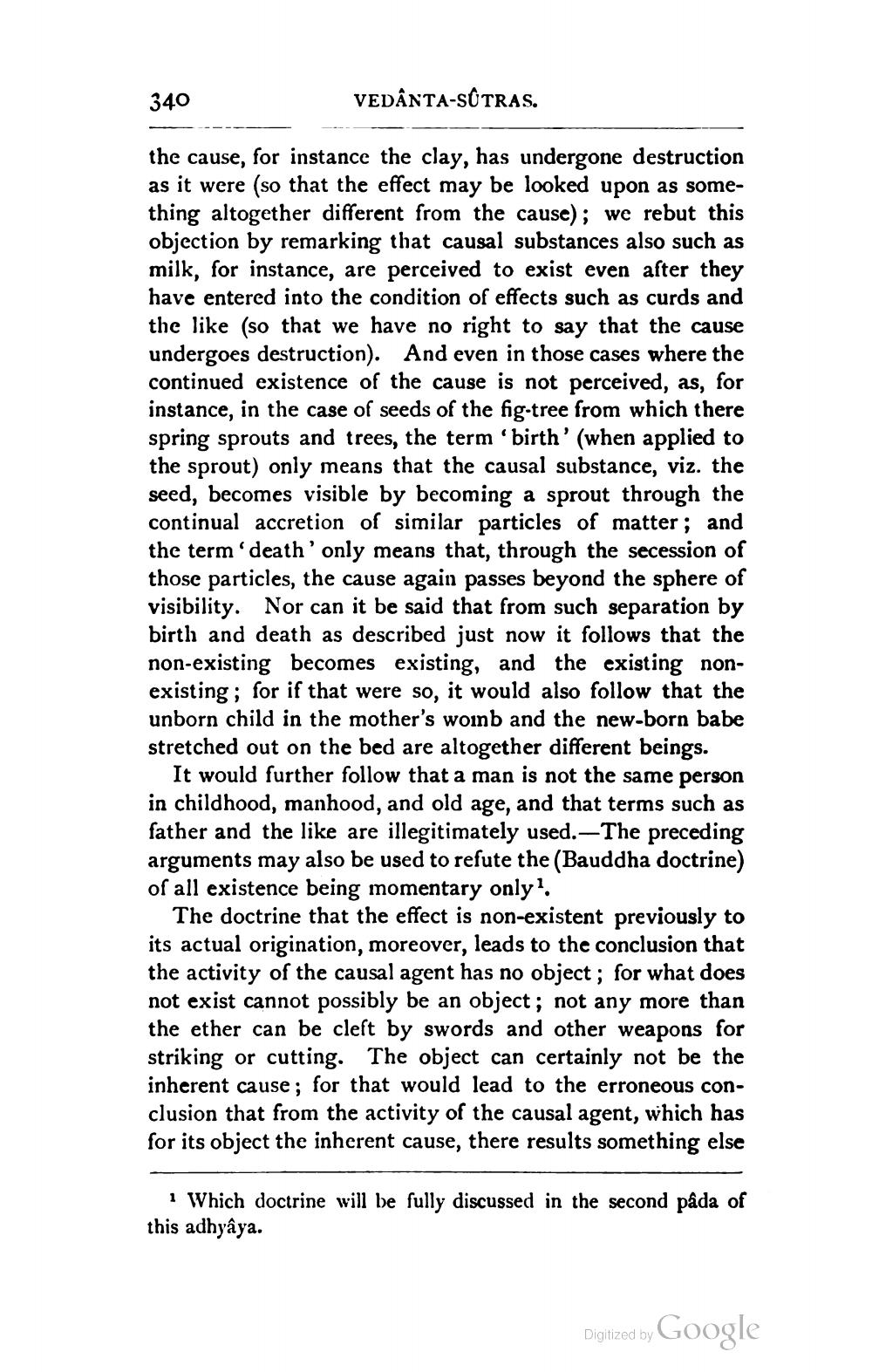________________
340
VEDÂNTA-SÛTRAS.
the cause, for instance the clay, has undergone destruction as it were (so that the effect may be looked upon as something altogether different from the cause); we rebut this objection by remarking that causal substances also such as milk, for instance, are perceived to exist even after they have entered into the condition of effects such as curds and the like (so that we have no right to say that the cause undergoes destruction). And even in those cases where the continued existence of the cause is not perceived, as, for instance, in the case of seeds of the fig-tree from which there spring sprouts and trees, the term 'birth' (when applied to the sprout) only means that the causal substance, viz. the seed, becomes visible by becoming a sprout through the continual accretion of similar particles of matter; and the term 'death' only means that, through the secession of those particles, the cause again passes beyond the sphere of visibility. Nor can it be said that from such separation by birth and death as described just now it follows that the non-existing becomes existing, and the existing nonexisting; for if that were so, it would also follow that the unborn child in the mother's womb and the new-born babe stretched out on the bed are altogether different beings.
It would further follow that a man is not the same person in childhood, manhood, and old age, and that terms such as father and the like are illegitimately used.—The preceding arguments may also be used to refute the (Bauddha doctrine) of all existence being momentary only?.
The doctrine that the effect is non-existent previously to its actual origination, moreover, leads to the conclusion that the activity of the causal agent has no object; for what does not exist cannot possibly be an object; not any more than the ether can be cleft by swords and other weapons for striking or cutting. The object can certainly not be the inherent cause; for that would lead to the erroneous conclusion that from the activity of the causal agent, which has for its object the inherent cause, there results something else
1 Which doctrine will be fully discussed in the second pâda of this adhyâya.
Digized by Google




